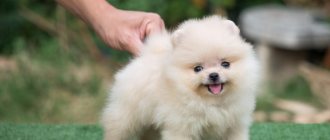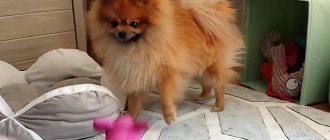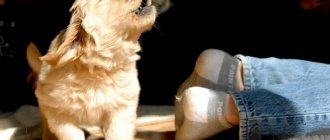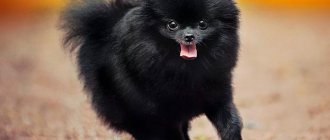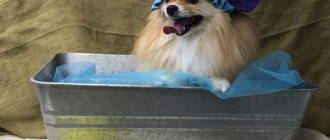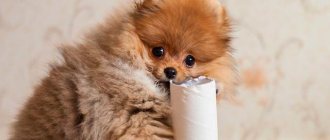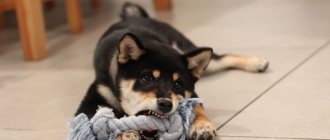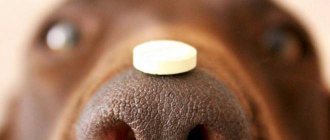Does your Pomeranian bite and bite you often? Pomeranian puppies are tiny and cute, but don't underestimate their sharp teeth. Biting in any form should be stopped as soon as possible to prevent future behavior problems.
So, how do you train your Pomeranian puppy not to bite? You can train your Pomeranian puppy not to bite by ignoring him. This way, your puppy will understand that biting does not mean fun or attention and he should stop doing it.
Since training your Pomeranian puppy not to bite sounds difficult, I have prepared a 7-step guide to help you achieve your goal. Just keep reading.
Understand Why Your Pomeranian Bites
When your Pomeranian bites, you should find out what is causing the behavior before wondering how to train your Pomeranian puppy not to bite.
In general, Pomeranians are not an aggressive breed, and they very rarely bite out of pure aggression. Generally, the two most common reasons why your Pomeranian puppy bites is teething and pain/discomfort.
When Spitz puppies start to pull their teeth, their gums become itchy and sore. As a result, your puppy will try to chew on everything in sight to relieve the discomfort of the adult dog's emerging teeth.
Sometimes your fingers and toes look as comfortable as any toy. So your Pomeranian may bite you when you touch or pet him. They are simply trying to get rid of teething pain.
© shutterstock
In addition to teething, Pomeranian puppies can bite even in bad weather. This is because your Pom feels vulnerable and afraid when he is sick. Moreover, you may put pressure on the sore spot when you lift them.
If your Pomeranian puppy appears lethargic, has no appetite, or seems to be in pain, you should take him to the vet immediately.
What to avoid
I’ll start with a list of what a person should avoid at all costs when raising our little brothers:
- You cannot hit even if the Spitz bites quite noticeably. First of all, let me remind you that this breed is extremely miniature - while the owner seems to have received only a weighty slap, the Pomeranian will receive a painful blow. You will be very lucky if, with such an impulse, you talk some sense into your pet, and the dog does not get injured. The nose is especially sensitive.
- For the same reason, you should not clamp your mouth . Injuring a Pomeranian is as easy as shelling pears.
- Pushing away with rudeness is a similar picture. Frankly speaking, I doubt that the owner of the Pomeranian miracle will raise his hand against him, but it is better to warn him just in case. In addition, often, wanting to wean a Spitz from the habit of biting, owners are surprised to find that the pet only gets excited. The opposite effect occurs - the Pomeranian woolball becomes even more aggressive, increasing the number of desperate attacks on its breadwinner. I must say that Spitz are quite vindictive creatures, hidden grudges are just in their style. Therefore, how effective is this weaning method? I think the effectiveness is minimal.
- Spray bottles filled with water are another undesirable weaning method. At first it seems that it is ideal - the animal is puzzled and for a while gives up its attempts to sharpen its teeth, and the water certainly will not cause injury. It is difficult to argue with such arguments, but I recommend taking into account the following point - trying to wean an animal from biting in this way can cause distrust in it. In the future, it will simply stop listening.
- Maybe ignoring it ? Also no. Of course, sooner or later the Pomeranian sadist will get tired of biting his victim. However, I assure you, this is temporary. It is almost certain that the animal will resume its attempts in the future. A good owner should not ignore the problem, but fight it. It is important to let your dog know that biting is not an acceptable activity. She won't outgrow her habit. Until the owner confidently points out that biting is taboo, the animal will not stop engaging in such obscenity.
Relieve teething pain
If your Pomeranian puppy is teething, your first order of business should be getting the right chew toys. When your Pomeranian puppy has appropriate toys to focus his attention on, he will be less likely to try to use your hands and feet as a chew toy.
You won't need a ton of toys, but a couple of toys that will help satisfy your Pomeranian's chewing needs.
Generally, most Pomeranians love chewing chunky gum because it scratches tooth itch and massages their gums.
However, you should also have stuffed animals on hand for those days when your Pomeranian's gums are too sore.
It's also a good idea to freeze a rubber toy in the refrigerator or offer frozen treats. This is because cold has a wonderful effect on the gums and is very effective.
Take your position as leader of the pack
If you want to teach your Pomeranian puppy not to bite, you have to be the alpha. In a pack, dogs will think twice before biting their leader because they know they will be punished. This way, your Pomeranian will be less likely to view you as a suitable bite target if you are an alpha.
One of the easiest ways to secure your position as pack leader is to forcefully use the "Sit" command whenever you feed your Pomeranian puppy. This shows your puppy that you are in control and he must obey you if he wants to eat.
Moreover, when you leave the house, you should be the first one to leave and the first one to enter. Your Pomeranian should follow you, not the other way around.
In addition to these methods, you can establish yourself in your role while remaining taller than your Pomeranian. What I mean is that you shouldn't sit on the floor with your Pomeranian puppy, and you shouldn't let him sit next to you on the couch.
Game or aggression?
No dog will just attack its owner. Aggression can manifest in a dog for various reasons. Most often they lead to it:
- improper maintenance and upbringing;
- lack of communication;
- unnecessary punishments and rewards;
- defenselessness and fear.
The basis of aggression is instinct. In particular, dominance aggression can be inherent in a dog at the genetic level. The dog perceives the family as its pack, and its behavior depends on what role is assigned to the animal in the house. If a dog has been pampered since puppyhood and was allowed everything, it will consider itself the leader of the pack and may show aggression towards its owner if he suddenly begins to punish it.
Important!
A dog should occupy the lowest place in the family, but this does not mean that it can be beaten and punished. However, all family members must adhere to the same rules of behavior towards animals. One prohibits, the other allows - this is unacceptable!
Parenting rules:
- Make sure your pet follows commands. They should be the same for all family members;
- control your dog while walking and don’t let it control you;
- define unacceptable behavior of the animal in the house (taking food from the table, sleeping on the bed, etc.) and demand strict adherence to the prohibitions;
- Do not physically punish the animal. In case of aggressive behavior, use commands to force him to obey you.
Learn to suppress bites
If you've ever watched puppies play, you know that they play, fight, and bite each other. However, sometimes one puppy bites the other too hard. When this happens, the injured puppy will usually yelp and then ignore the other puppy for a while.
This way, puppies learn to control their bite force. Otherwise, no one will play with them.
So, whenever your Pomeranian puppy bites or bites you, you should act resentfully. Say loudly: “Oh!” even if it doesn't hurt at all. Then ignore the puppy for a couple of minutes.
Over time, your Pomeranian puppy will learn that you won't play with him when he bites. This should make them stop biting when you handle them.
© shutterstock
Ignore your Pomeranian puppy
Do you know why your Pomeranian puppy keeps biting you? Puppies repeat certain behaviors when they receive some kind of reward.
For example, your Pomeranian puppy bites your leg or hand because he knows you are going to pay attention to him. So, you are rewarding your puppy without realizing it.
Instead, you should place your Pomeranian puppy in his playpen. Then leave it there for a couple of minutes. It is important that you do not pay attention to your puppy. Don't talk to them or even look at them. It's the same with the rest of the family.
It may take a while for your Pomeranian puppy to understand that you are “punishing” him. So, wait until your puppy starts whining and pacing before letting him out of the playpen. Don't interact with the puppy right away, but wait a couple of minutes. Then you may accidentally initiate contact.
If your puppy bites you again, you will return him to the playpen. But they behave well, you should praise and reward them.
This way, you will teach your Pomeranian that biting is tantamount to expulsion, and not biting is a reward.
How to stop a puppy from biting and grabbing their owners' arms and legs?
All puppies bite. This is normal behavior. But it needs to be corrected from the first months of life. By six months, instead of light scratches, serious wounds from the teeth will remain on the owner’s body. And it will become difficult to stop your dog from grabbing arms and legs. In the article we will tell you how to wean puppies of different ages from biting their legs and arms, we will describe the reasons and all methods of correction - from gentle home ones to complex ones, which are carried out in pairs with a dog handler. We will also point out the main mistakes of novice owners and explain how to avoid them.
Do not Cry
Appropriate punishment for a biting Pomeranian is to ignore him or put him in a playpen.
You should not shout or yell at your dog. The only thing you will achieve is to make your Pomeranian puppy afraid of you. And when dogs are scared, they are more likely to bite.
Some owners use a spray bottle to train their Pomeranian puppy not to bite. You should only try it if you are unable to use other methods or if your puppy is being too aggressive.
How not to unlearn - common mistakes
Inexperienced dog owners often resort to reading specialized literature, which outlines many of the nuances of training. It takes a lot of time to learn such a plan, but besides this, you should avoid mistakes that can lead to problems in the future:
- It is strictly forbidden to shout and “freak out” at the animal. The pet can partly adopt this example of behavior. Dogs are also irritated by this behavior.
- Under no circumstances should you beat a puppy or an adult dog or pinch its tail. An animal can become aggressive against its owner and attack at any moment.
- You shouldn't use the same technique if it doesn't work. It is necessary to select an individual approach in accordance with the character of the pet.
A parenting mistake is hitting a dog.
Every month the pet grows up, its character changes, and its needs increase. This must be taken into account when choosing methods of influencing your pet.
Don't overstimulate your Pomeranian puppy
Sometimes Pomeranian puppies get too excited when playing with you or a toy and may bite out of excitement.
This is not behavior you want to encourage. So, you should stop playing as soon as your puppy bites you, or take out the toy that excites your puppy. This will teach your pet that he must behave if he wants to have fun with you and his toys.
In addition to this, you should always ensure that your Pomeranian puppy gets enough exercise per day. A bored puppy is more likely to bite out of boredom or become overly excited during play.
Help from a dog handler
If you have not been able to correct the behavior on your own before the age of 6 months, contact a dog trainer. Both individual and group lessons are useful. Among them:
- ordinary classes:
the dog handler will select the right technique, correct errors in education, and correct actions; - general training course (GTC):
will help develop obedience, acquire normal dog communication skills with other animals and people, and master basic commands; - protective guard service (PSC) course:
suitable for juniors older than 8 months of service and guard breeds, during which dogs will be taught to direct aggression in the right direction, taught to wean themselves from biting without reason, and shown that teeth should only be used at the command of the owner.

